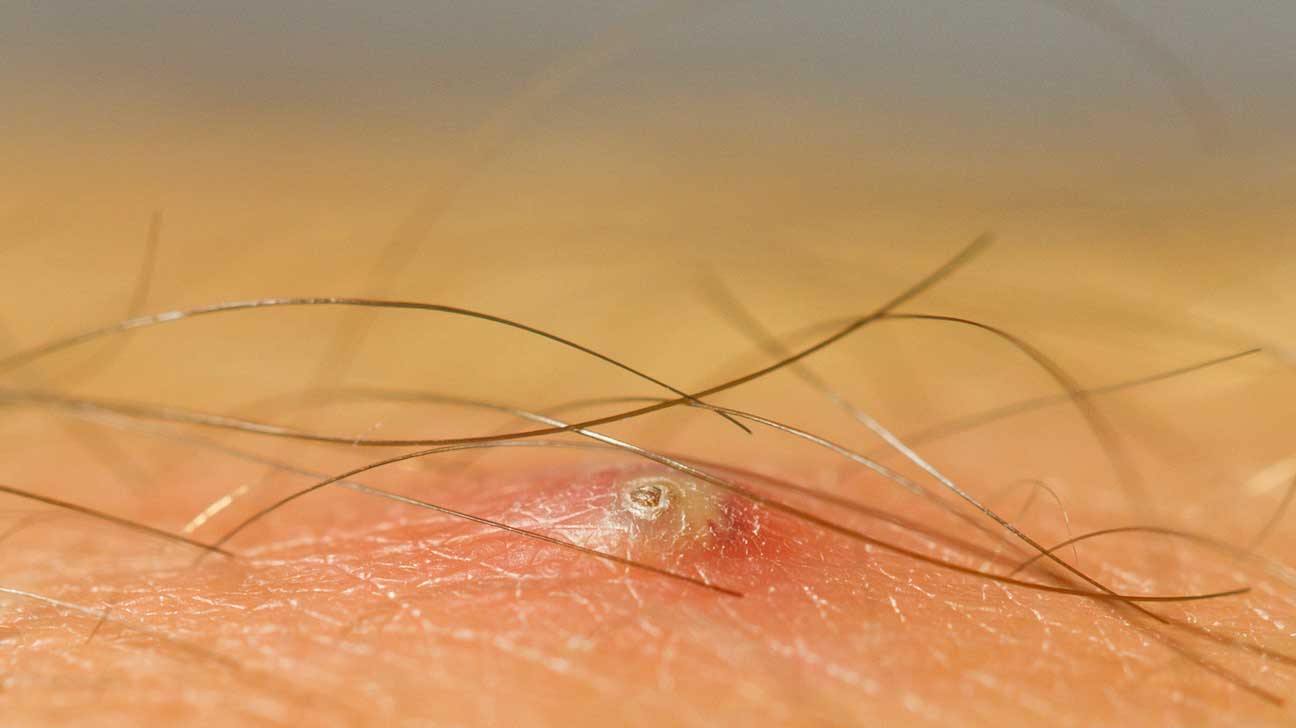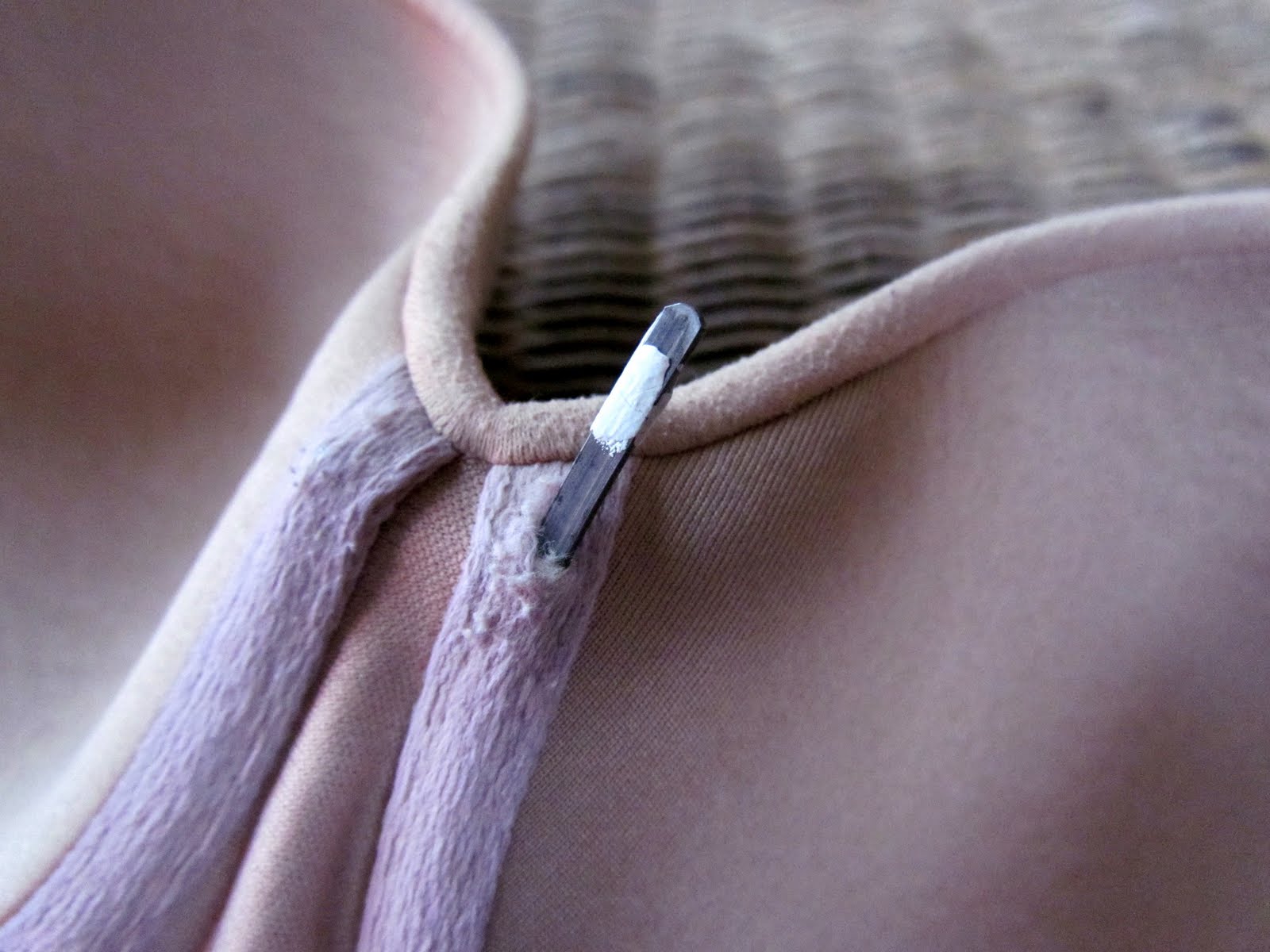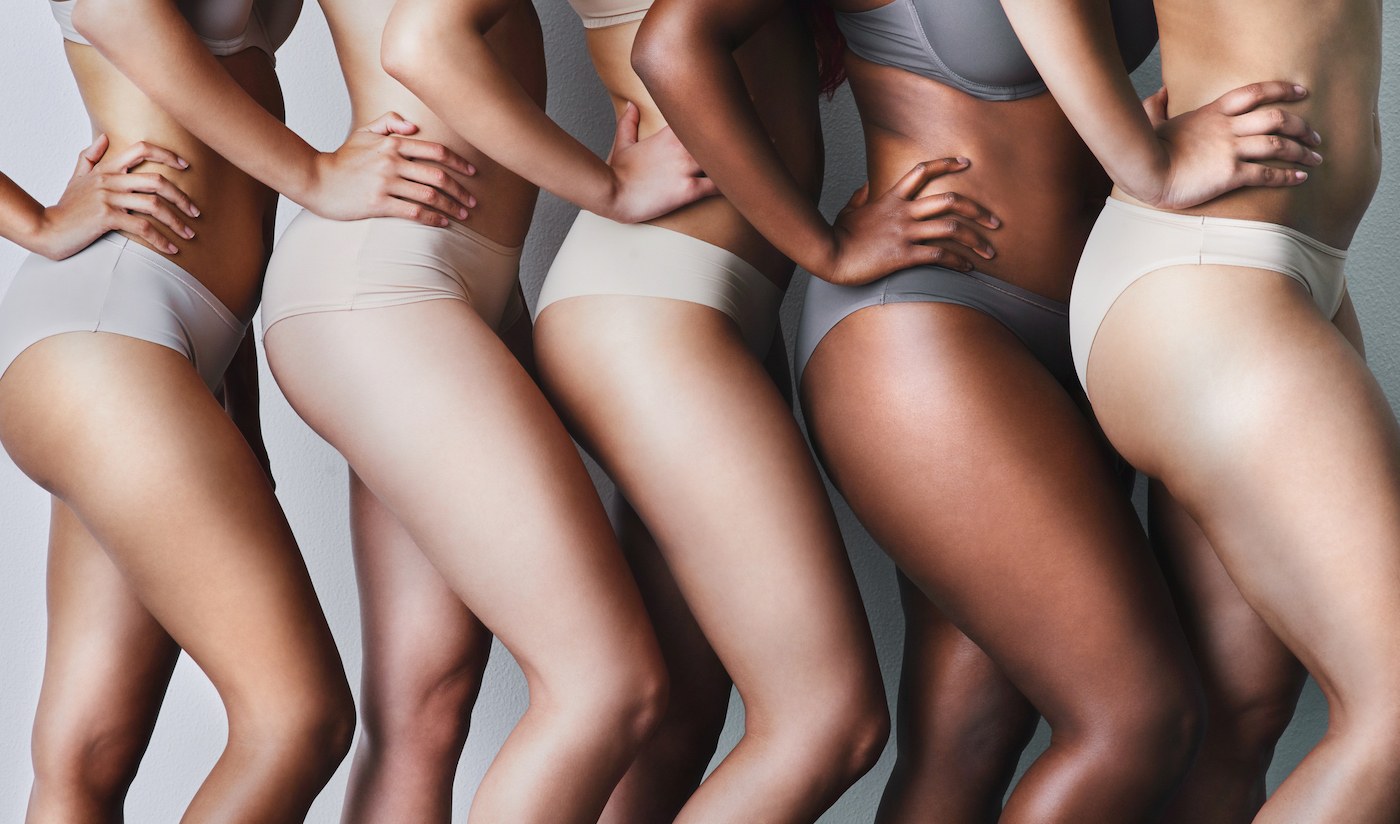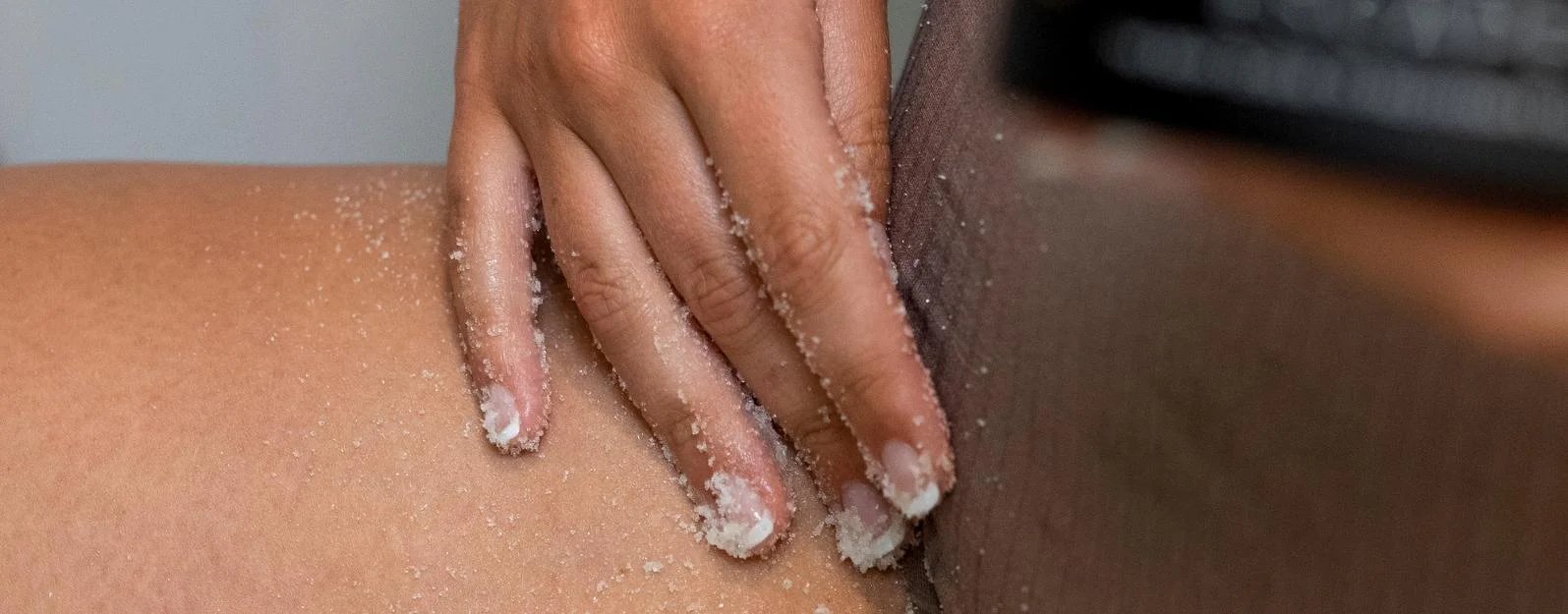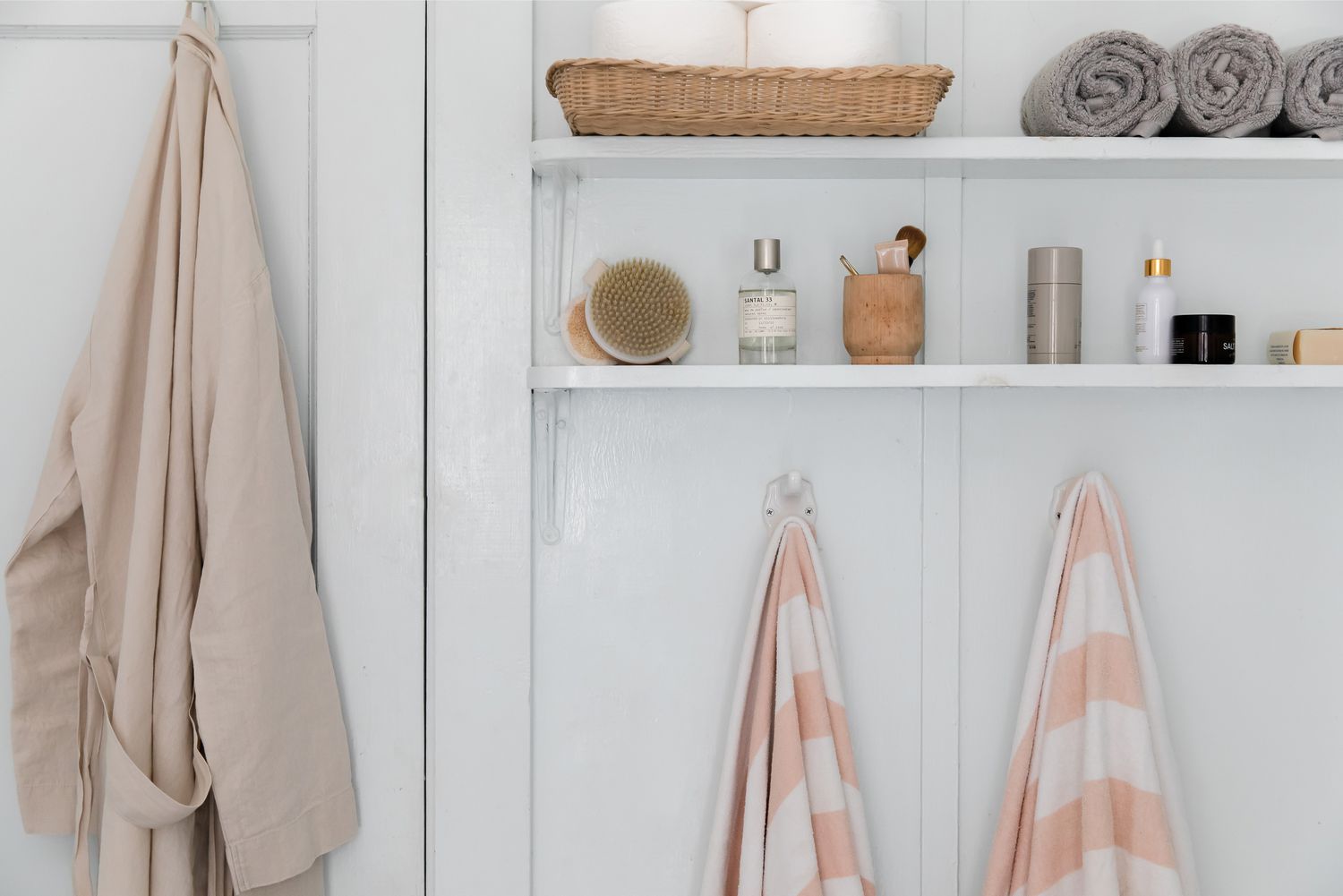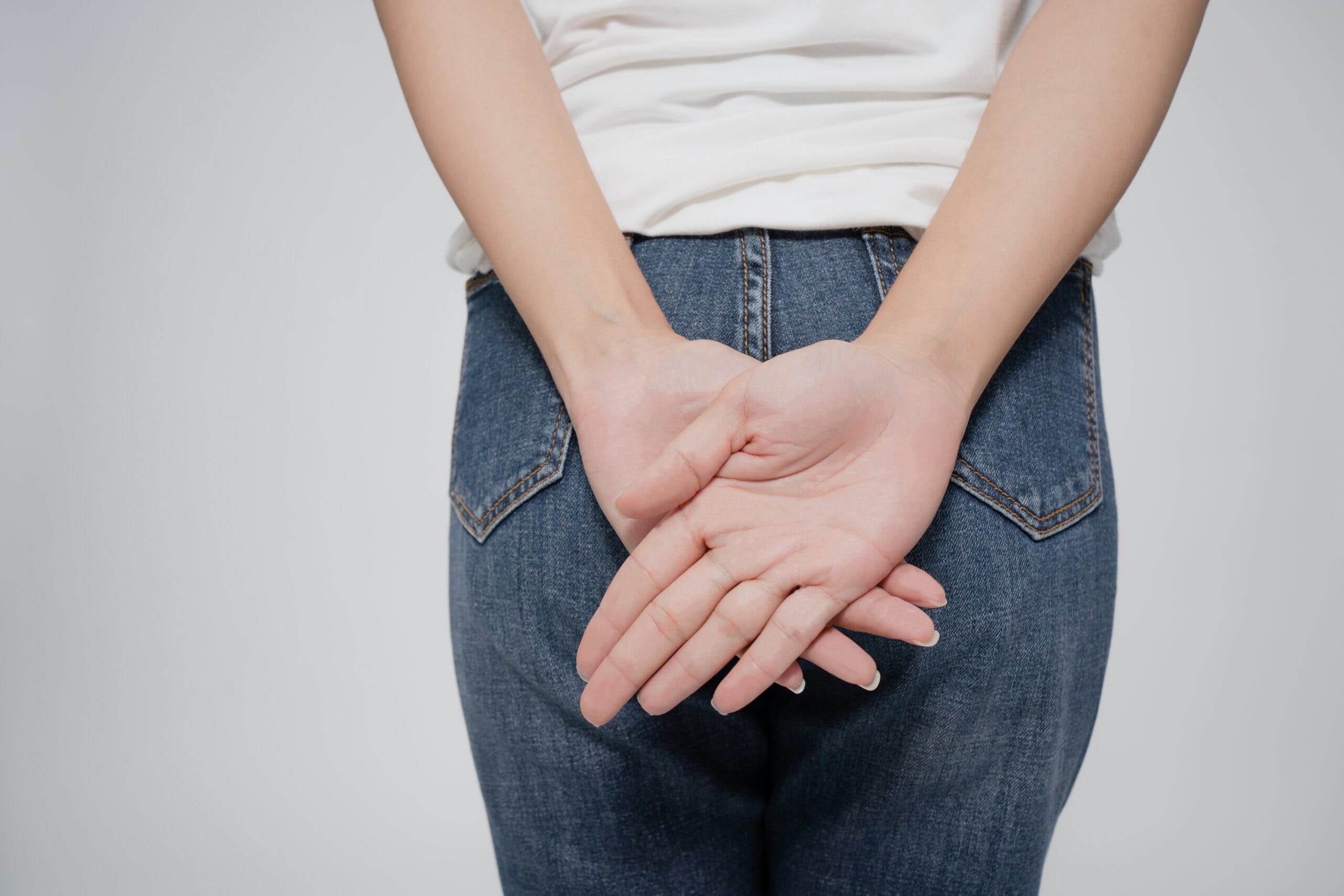Home>How-to Guides>For All>How To Stop Fart Noises In Shoes
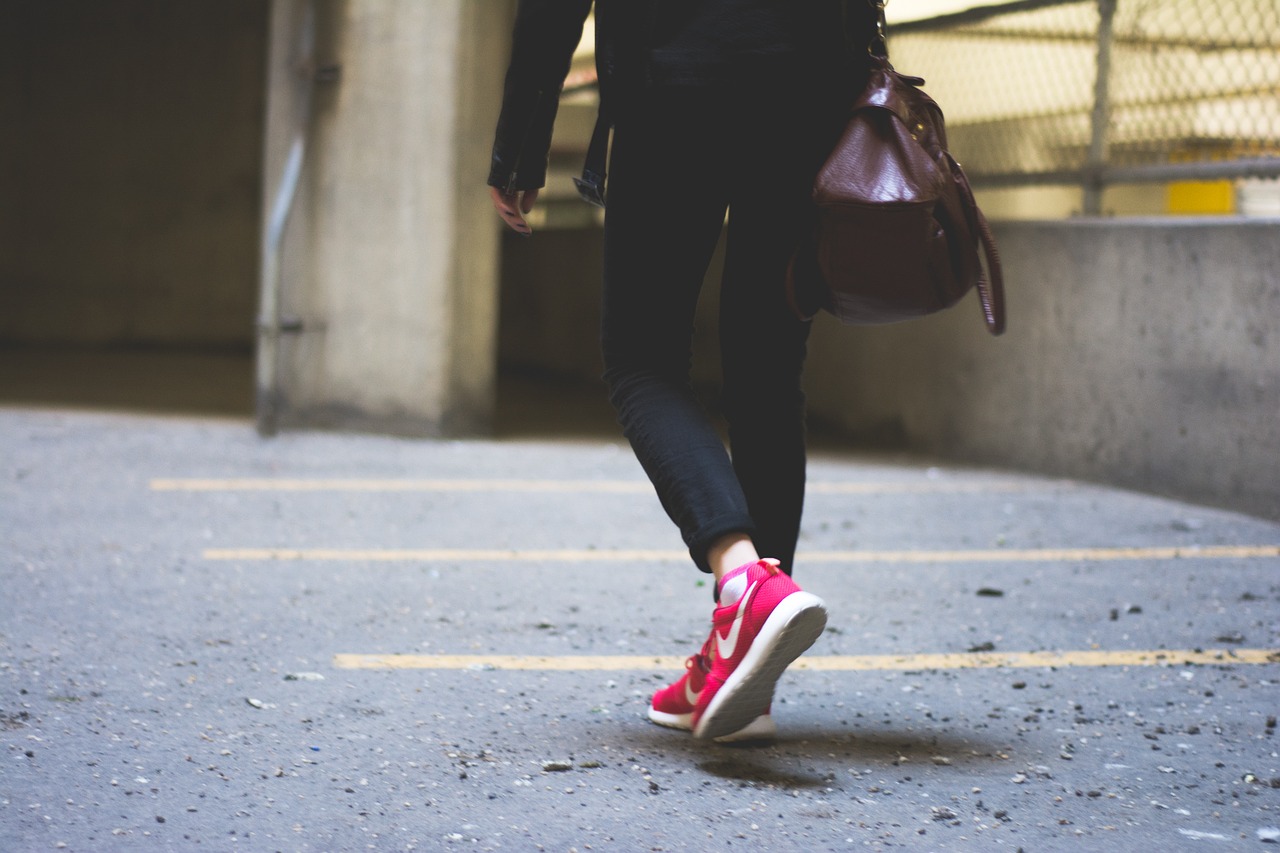

For All
How To Stop Fart Noises In Shoes
Modified: August 5, 2023
Discover effective solutions and tips on how to prevent embarrassing fart noises in your shoes. Our comprehensive guide is suitable for all individuals seeking a quick and reliable fix.
(Many of the links in this article redirect to a specific reviewed product. Your purchase of these products through affiliate links helps to generate commission for Under-tec.com, at no extra cost. Learn more)
Table of Contents
- Introduction
- Common Causes of Fart Noises in Shoes
- Tips and Techniques to Prevent Fart Noises in Shoes
- Choosing the Right Shoe Material
- Using Insoles or Inserts
- Adding Moisture-Absorbing Materials
- Properly Fitting Shoes
- Avoiding Tight or Ill-Fitting Socks
- Using Powder or Anti-Friction Products
- Regular Shoe Maintenance and Cleaning
- Getting Professional Help
- Conclusion
Introduction
Have you ever experienced the embarrassing situation of walking around and suddenly hearing a strange noise emanating from your shoes? Yes, we’re talking about fart noises in shoes. These unexpected sounds can be not only embarrassing but also quite uncomfortable, leading to feelings of self-consciousness and awkwardness in social situations.
The good news is that there are ways to prevent these embarrassing noises and regain your confidence. By understanding the common causes of fart noises in shoes and implementing some simple techniques, you can put an end to this embarrassing problem once and for all.
In this article, we will explore the common causes of fart noises in shoes and provide you with practical tips and techniques to prevent them from happening. So, if you’re tired of feeling embarrassed every time you take a step, keep on reading!
It’s important to note that fart noises in shoes are not actually caused by flatulence. Instead, they are typically the result of friction between your feet, shoes, and the surrounding environment. When the materials rub together, air gets trapped and released, creating the familiar fart-like sound.
Understanding the root causes of fart noises in shoes is crucial to finding effective solutions. Whether it’s the wrong shoe material, improper fit, or the absence of necessary moisture-absorbing substances, each factor plays a role in the production of these embarrassing sounds. By addressing these causes, you can eliminate the problem and enjoy a quiet and comfortable stride.
Common Causes of Fart Noises in Shoes
Understanding the common causes of fart noises in shoes is the first step towards finding effective solutions. Let’s take a closer look at the factors that contribute to this embarrassing phenomenon:
- Friction between materials: When your feet rub against the insole, lining, or other materials inside your shoes, it can create friction. This friction generates air pockets that are subsequently released, resulting in fart-like noises.
- Improper shoe fit: Wearing shoes that are too tight or too loose can contribute to fart noises. Tight shoes can cause excessive pressure on your feet, leading to increased friction and the release of air. On the other hand, loose shoes may cause your feet to slide around inside, creating similar noise-generating conditions.
- Incorrect shoe materials: Certain materials, such as synthetic fabrics or rubber, can be more prone to creating fart noises due to their inherent properties. These materials may trap air more easily and produce the desired sound effects.
- Inadequate moisture management: Excessive moisture inside your shoes can exacerbate fart noises. When your feet sweat and the moisture is not properly absorbed or circulated, it can create a slippery environment, leading to increased friction and noise production.
By identifying these common causes, you can better address the issue and implement appropriate techniques to prevent fart noises in your shoes. Let’s explore some practical tips to put a stop to these embarrassing sounds and stride confidently in silence.
Tips and Techniques to Prevent Fart Noises in Shoes
No one wants to be caught off guard by fart noises coming from their shoes. Fortunately, there are several effective techniques and preventive measures you can take to stop those embarrassing sounds. Here are some practical tips to keep your shoes silent:
- Choosing the Right Shoe Material: Opt for shoes made from natural and breathable materials like leather or canvas. These materials allow better air circulation and reduce friction, minimizing the chances of fart noises.
- Using Insoles or Inserts: Invest in high-quality insoles or inserts designed to absorb moisture and cushion your feet. They not only provide additional comfort but also help reduce friction and noise generation.
- Adding Moisture-Absorbing Materials: Place moisture-absorbing materials like talcum powder, baking soda, or cedar shoe inserts inside your shoes. These materials help absorb excess moisture, keeping your feet dry and minimizing the conditions that lead to fart noises.
- Properly Fitting Shoes: Ensure that your shoes fit properly and are neither too tight nor too loose. A snug fit allows for better control and reduces the likelihood of friction-induced noises.
- Avoiding Tight or Ill-Fitting Socks: Choose socks that provide a comfortable fit without being too tight. Ill-fitting socks can create additional friction inside your shoes, contributing to fart noises. Opt for moisture-wicking socks to keep your feet dry and reduce moisture-related issues.
- Using Powder or Anti-Friction Products: Apply a small amount of baby powder or anti-friction products to your feet before putting on your socks and shoes. This creates a smooth surface and reduces friction, preventing fart noises.
- Regular Shoe Maintenance and Cleaning: Keep your shoes clean and well-maintained. Regularly clean the insides and remove any debris or dirt that may contribute to friction and noise. Proper shoe hygiene goes a long way in preventing embarrassing sounds.
- Getting Professional Help: If you’ve tried various techniques but still can’t seem to eliminate fart noises from your shoes, consider seeking advice from a podiatrist or a shoe specialist. They can assess your feet and shoe fit and provide personalized recommendations to address the issue.
By implementing these tips and techniques, you can significantly reduce or eliminate the occurrence of fart noises in your shoes. Say goodbye to embarrassing moments and walk confidently without worrying about unwanted sounds!
Choosing the Right Shoe Material
When it comes to preventing fart noises in shoes, one of the key factors to consider is the material from which the shoes are made. The type of material can greatly affect the amount of friction and noise generated. Here are some tips for selecting the right shoe material:
Opt for Natural and Breathable Materials: Shoes made from natural materials such as leather, suede, or canvas tend to be more breathable. These materials allow for better air circulation, reducing the chances of trapped air and the subsequent fart-like noises. Additionally, they are often softer and less likely to cause friction against your feet.
Avoid Synthetic Fabrics: Synthetic materials like plastic or synthetic leather can be more prone to creating fart noises. These materials often lack breathability and can create a stickier environment inside the shoe, increasing the likelihood of friction and noise production. It’s best to steer clear of shoes made primarily from synthetic fabrics.
Consider Leather Insoles: The insole is the part of the shoe where your foot makes contact. Opting for shoes with leather insoles can help reduce friction and noise. Leather is a smooth material that allows for better sliding and minimizes the chances of air pockets forming and causing fart sounds. Leather insoles also tend to have moisture-absorbing properties, keeping your feet dry and comfortable.
Look for Rubber Soles with Tread: While rubber soles can be more prone to generating noise, those with a textured or treaded surface can help minimize the occurrence of fart sounds. The texture provides a better grip and reduces the amount of slipping and sliding inside the shoe, decreasing the likelihood of friction-induced noises.
Remember, choosing the right shoe material is crucial in preventing fart noises. By opting for natural and breathable materials, avoiding synthetic fabrics, considering leather insoles, and looking for rubber soles with a textured surface, you can minimize friction and enjoy a quieter walking experience.
Using Insoles or Inserts
Insoles and inserts can be incredibly helpful in preventing fart noises in shoes. They not only provide additional comfort and support but also help to reduce friction and noise generation. Here’s how you can utilize them effectively:
Invest in High-Quality Insoles: Look for insoles specifically designed to absorb moisture and provide cushioning. These types of insoles are often made from materials like memory foam or gel, which can help reduce friction and create a more comfortable environment for your feet. Make sure to choose insoles that are the correct size and fit your shoes properly.
Select Inserts for Specific Needs: Depending on your foot type and specific requirements, you may benefit from different types of shoe inserts. For example, if you have high arches, consider using arch support inserts to help distribute weight evenly and minimize pressure points. If you have flat feet, orthotic inserts can provide the necessary support and stability.
Moisture-Absorbing Inserts: Moisture inside your shoes can contribute to fart noises. Consider using moisture-absorbing inserts, such as cedar shoe inserts or activated charcoal inserts, to help keep your feet dry and reduce friction caused by excess moisture. These inserts can also help prevent unpleasant odors associated with sweaty feet.
Cushioning Inserts: Cushioning inserts can provide an extra layer of padding and shock absorption, reducing the impact on your feet as you walk. They can help minimize friction between your feet and shoes, thereby reducing noise production. Look for inserts made from materials like silicone or foam for maximum comfort and noise reduction.
Proper Insert Placement: Ensure that you properly position your insoles or inserts inside your shoes. Make sure they are aligned with the arch of your foot and that they cover the entire length of the shoe. This will help distribute pressure evenly and reduce the chances of friction and noise.
Regular Replacement: Keep in mind that insoles and inserts can wear out over time. Regularly check the condition of your inserts and replace them if they show signs of wear or are no longer providing the necessary support. This will help ensure optimal performance in preventing fart noises.
By utilizing high-quality insoles or inserts, tailored to your specific needs, you can enhance comfort and minimize friction within your shoes. This, in turn, helps to prevent embarrassing fart noises, allowing you to walk confidently and without worry.
Adding Moisture-Absorbing Materials
Excessive moisture inside your shoes can exacerbate the occurrence of fart noises. When your feet sweat and the moisture is not properly absorbed, it creates a slippery environment that increases friction – and the potential for embarrassing sounds. To combat this, adding moisture-absorbing materials to your shoes can greatly help. Here are some tips:
Talcum Powder or Baby Powder: Talcum powder or baby powder is a popular choice for absorbing moisture in shoes. Before putting on your shoes, sprinkle a small amount of powder inside to help absorb excess moisture. This will help keep your feet dry and reduce the conditions that lead to fart noises. Be sure to evenly distribute the powder and shake out any excess before putting on your shoes.
Baking Soda: Baking soda is another great moisture-absorbing material that can be used to prevent fart noises in shoes. Simply sprinkle a small amount of baking soda inside your shoes and let it sit overnight to absorb any excess moisture. In addition to reducing moisture, baking soda can also help eliminate any unpleasant odors.
Cedar Shoe Inserts: Cedar shoe inserts are not only effective at absorbing moisture but also boast natural antimicrobial properties. These inserts help to control foot sweat and reduce friction within the shoe. They are especially useful for individuals who tend to have excessively sweaty feet, as they can help create a drier and healthier shoe environment.
Activated Charcoal Inserts: Activated charcoal inserts are another option for combating moisture and preventing fart noises. These inserts are designed to absorb excess moisture, eliminate odors, and improve air circulation within the shoe. The activated charcoal acts as a natural deodorizer, keeping your feet fresh and dry.
Silica Gel Packets: Silica gel packets, commonly found in packaging for various products, can also be repurposed to help absorb moisture in your shoes. These small packets contain silica beads, which are excellent at trapping moisture. Simply place a couple of the packets inside your shoes when they are not in use, and they will help to keep the shoe environment dry and odor-free.
Remember to Replace Moisture-Absorbing Materials: It’s important to regularly replace the moisture-absorbing materials in your shoes to maintain their effectiveness. Over time, these materials can become saturated and lose their ability to absorb moisture properly. Replace them as needed, depending on the intensity of your foot perspiration.
By adding moisture-absorbing materials to your shoes, you can reduce moisture buildup, minimize friction, and prevent embarrassing fart noises. These simple steps will help create a more comfortable and pleasant experience while walking or engaging in various activities.
Properly Fitting Shoes
One of the most important factors in preventing fart noises in shoes is ensuring that they fit properly. Shoes that are too tight or too loose can contribute to friction and discomfort, leading to embarrassing sounds. Follow these tips to ensure your shoes fit just right:
Measure Your Feet: Start by determining your correct shoe size. Use a foot measurement tool or visit a shoe store to have your feet measured professionally. Remember that foot size can change over time, so it’s essential to measure both feet for an accurate fit.
Consider Shoe Width: In addition to length, pay attention to the width of the shoe. Some people have wider feet, while others have narrower feet. Make sure to choose shoes that accommodate the width of your feet comfortably. It’s also worth considering shoe brands that offer different width options for a more customized fit.
Test the Toe Box: The toe box, or the front part of the shoe where the toes rest, should provide enough space for your toes to wiggle comfortably. Avoid shoes with a tight or narrow toe box, as they can put pressure on your toes and lead to friction-induced noises.
Check the Heel Fit: The back of the shoe, known as the heel area, should fit snugly around your heel without being too tight or too loose. If the heel slips out of the shoe when walking, it can create friction and contribute to fart noises. Look for shoes with proper heel support and a secure fit.
Consider Different Shoe Styles: Different shoe styles can have varying fits and shapes. For example, loafers may fit differently than athletic shoes. Take the time to try on various shoe styles and brands to find the ones that fit your feet best and minimize friction.
Go Shoe Shopping Later in the Day: Feet can swell slightly throughout the day, so it’s best to go shoe shopping in the afternoon or evening when your feet are at their largest. This will ensure that you choose shoes that fit comfortably even during periods of slight foot swelling.
Listen to Your Feet: Ultimately, pay attention to how your feet feel in a particular pair of shoes. If they feel cramped, tight, or uncomfortable, they may not be the right fit for you. Trust your instincts and opt for shoes that provide a comfortable and secure fit without causing any discomfort or excessive rubbing.
Properly fitting shoes are essential for preventing fart noises. By selecting the right shoe size, considering width, considering different shoe styles, and listening to your feet, you can ensure a comfortable fit that minimizes friction and embarrassing sounds.
Avoiding Tight or Ill-Fitting Socks
When it comes to preventing fart noises in shoes, it’s not just about the shoes themselves; the socks you wear also play a crucial role. Wearing tight or ill-fitting socks can contribute to friction and discomfort, leading to embarrassing sounds. Here are some tips to help you choose the right socks:
Avoid Tight Socks: Opt for socks that fit comfortably without causing any constriction or tightness around your feet. Tight socks can restrict circulation and increase the chances of friction and noise generation. Choose socks with a bit of stretch that conform to the shape of your feet without feeling too tight.
Choose the Right Size: Just like shoes, socks come in different sizes. It’s important to select socks that correspond to your foot size. Wearing socks that are too big can cause excess fabric to bunch up, while socks that are too small can squeeze your feet and create added friction. Ensure that your socks fit snugly but comfortably.
Consider the Material: The material composition of your socks can also impact their fit and performance. Look for socks made from breathable and moisture-wicking materials like cotton, bamboo, or merino wool. These materials help keep your feet dry and reduce the chances of moisture-related friction and noise.
Seamless Socks: Pay attention to the sock’s construction and avoid socks with bulky or irritating seams. Look for seamless socks or socks with flat toe seams to minimize discomfort and rubbing against your feet. Seamless socks provide a smooth surface that reduces friction and lowers the chances of embarrassing sounds.
Replace Old or Worn-Out Socks: Over time, socks can lose their elasticity and fit, leading to a looser and less snug feel. Replace socks that have become stretched out or worn. Worn-out socks can bunch up inside your shoes and result in increased friction and noise. Regularly replenish your sock drawer to ensure you have socks that fit properly.
Moisture-Wicking Socks: Opting for moisture-wicking socks can help keep your feet dry, especially if you tend to have sweaty feet. These socks are designed to pull moisture away from your skin, reducing the chances of excessive moisture buildup inside your shoes. Drier feet mean less friction and a lower likelihood of producing unwanted noises.
By avoiding tight or ill-fitting socks and opting for the right size, material, and construction, you can minimize friction and discomfort, significantly reducing the occurrence of fart noises in your shoes. Remember, comfortable and well-fitting socks are an essential component of a noise-free stride.
Using Powder or Anti-Friction Products
If you’re looking for additional ways to prevent fart noises in shoes, using powder or anti-friction products can be highly effective. These products create a protective barrier and reduce friction, minimizing the chances of embarrassing sounds. Here’s how you can use them:
Baby Powder or Talcum Powder: Applying a small amount of baby powder or talcum powder to your feet before putting on socks and shoes can help absorb moisture and reduce friction. This creates a smoother surface and reduces the likelihood of fart noises. Make sure to evenly distribute the powder and shake off any excess before wearing your shoes.
Anti-Friction Sticks or Balms: Anti-friction sticks or balms, also known as anti-chafing sticks, are designed to reduce friction and prevent discomfort. Apply these products to areas where your skin comes into contact with your shoes, such as heels or toes. The smooth, lubricating formula creates a barrier that reduces the chances of friction-induced sounds.
Petroleum Jelly or Body Glide: Another option to minimize friction is to use petroleum jelly or body glide. Apply a small amount to areas prone to rubbing or irritation, such as the back of your heels or the sides of your toes. These products create a protective layer that reduces friction and noise generation.
Silicone-Based Sprays or Lubricants: Silicone-based sprays or lubricants can be sprayed directly onto the inside of your shoes to reduce friction. These products create a thin, slippery film that helps your feet slide more easily, minimizing the chances of air pockets forming and producing fart-like noises.
Powder-Spraying Products: There are specialized powder-spraying products available that can be sprayed directly into your shoes. These powders provide moisture control and a silky texture that reduces friction. They can absorb excess moisture and create a dry environment, minimizing the conditions that lead to embarrassing sounds.
Experiment with Different Products: Every individual is different, and what works for some may not work for others. It may require some trial and error to find the right powder or anti-friction product that suits your needs and preferences. Don’t be afraid to experiment with different options until you find the solution that works best for you.
Using powder or anti-friction products can be a reliable method to prevent fart noises in shoes. Whether it’s baby powder, anti-friction sticks, petroleum jelly, silicone-based sprays, or specialized powder-spraying products, these solutions help reduce friction and create a comfortable, noise-free walking experience.
Regular Shoe Maintenance and Cleaning
Regular shoe maintenance and cleaning can go a long way in preventing fart noises and prolonging the lifespan of your shoes. By keeping your shoes in good condition, you can reduce friction and ensure optimal performance. Here are some tips for maintaining and cleaning your shoes:
Keep Your Shoes Clean: Regularly clean your shoes to remove dirt, debris, and any other particles that can contribute to friction and noise. Follow the manufacturer’s guidelines for cleaning your specific shoe material, whether it’s leather, canvas, or synthetic fabric. Proper cleaning helps maintain the integrity of the shoe and reduces the chances of unwanted sounds.
Check for Loose or Worn Outsoles: Inspect the outsoles of your shoes regularly for any signs of wear or detachment. Worn-out or loose outsoles can create uneven surfaces and increase the chances of friction. If you notice any issues, consider repairing or replacing the outsoles to restore proper function and minimize noise production.
Replace Worn or Damaged Insoles: Over time, insoles can become worn out or lose their cushioning properties. Inspect the condition of your insoles periodically and replace them if they show signs of deterioration. Worn-out insoles not only compromise comfort but also contribute to friction and noise production.
Address Loose or Frayed Shoe Laces: Loose or frayed shoe laces can add to the overall instability of your shoes, leading to excess movement and friction. Keep your laces securely tied and replace them if necessary. This ensures a snug fit and reduces the likelihood of fart noises caused by loose laces slapping against your shoes.
Apply Leather Conditioner: If you own leather shoes, use a leather conditioner or moisturizer periodically to keep the leather supple and prevent it from drying out and cracking. Well-maintained leather is less likely to cause friction and produce unwanted sounds.
Store Shoes Properly: When you’re not wearing your shoes, store them in a cool and dry location. Avoid leaving them in damp or humid environments, as moisture buildup can increase friction and lead to unanticipated noises. Proper shoe storage helps maintain the shape and condition of your shoes, reducing the chances of noise generation.
Address Unusual Noises Promptly: If you notice any unexpected or persistent noises coming from your shoes, such as squeaking or creaking, it’s important to address them promptly. Examine your shoes for any potential issues, such as loose parts or worn-out components, and take appropriate measures to resolve them. Prompt maintenance can prevent the problem from worsening and leading to fart noises.
By regularly maintaining and cleaning your shoes, you can minimize wear and tear, reduce friction, and prevent fart noises. Proper shoe care not only prolongs the life of your footwear but also ensures a quieter and more comfortable walking experience.
Getting Professional Help
If you’ve tried various techniques to prevent fart noises in your shoes but still find yourself dealing with the embarrassing sounds, it might be beneficial to seek professional help. Podiatrists and shoe specialists can provide valuable insights and recommendations. Here’s how professional assistance can help:
Foot Assessment: A podiatrist can conduct a thorough assessment of your feet, including their structure, movement, and any potential issues that might contribute to excessive friction or noise generation. They can identify any underlying foot conditions, such as overpronation or flat feet, and provide customized advice to address these concerns.
Shoe Fit Evaluation: Shoe specialists can evaluate the fit of your shoes to determine if any modifications or adjustments are necessary. They can identify potential fit issues that may be contributing to friction and noise, such as sizing discrepancies or mismatched shoe styles for your foot shape.
Custom Orthotics: If you have specific foot conditions or biomechanical issues that contribute to excessive friction and noise, a podiatrist may recommend custom orthotics. These are specially designed inserts that are tailored to your feet and provide the necessary support and cushioning to reduce friction and prevent embarrassing sounds.
Professional Shoe Recommendations: Shoe specialists have in-depth knowledge of various shoe brands, styles, and features. They can recommend shoes that are specifically designed to minimize friction and noise generation. Their expertise can help you find the right type of shoe that suits your needs and prevents embarrassing sound effects.
Additional Treatment Options: In some cases, podiatrists may suggest additional treatment options, such as foot exercises, physical therapy, or special foot care products. These treatments can help improve foot function, reduce friction, and alleviate any underlying foot conditions that contribute to fart noises.
Continued Guidance and Support: Seeking professional help ensures ongoing guidance and support for your foot and shoe-related concerns. Podiatrists and shoe specialists can provide comprehensive advice tailored to your specific needs, enabling you to overcome the problem of fart noises and continue walking comfortably and confidently.
Remember, professional help can make a significant difference in addressing persistent fart noises in your shoes. By seeking expert guidance and following their recommendations, you can find effective solutions and enjoy a noise-free walking experience.
Conclusion
Fart noises in shoes can be embarrassing and uncomfortable, but with the right knowledge and techniques, you can put an end to this problem and walk confidently without worry. By addressing the common causes of fart noises, implementing practical tips, and considering professional help if needed, you can prevent these embarrassing sounds and enjoy a quiet and comfortable stride.
Choosing the right shoe material and ensuring proper fit are essential factors in preventing fart noises. Natural and breathable materials, along with properly fitting shoes and socks, reduce friction and minimize the conditions that create embarrassing sounds. Adding moisture-absorbing materials, such as powder or inserts, keeps your feet dry and comfortable, further reducing noise generation.
Regular shoe maintenance, including cleaning and checking for loose or worn components, is crucial in prolonging the lifespan of your shoes and preventing fart noises. Seeking professional help from podiatrists or shoe specialists can provide valuable insights and personalized recommendations to address foot and shoe-related issues that may contribute to embarrassing sounds.
Remember, eliminating fart noises in shoes is not only about preventing discomfort and awkward moments, but it’s also about restoring your confidence. With a combination of the right techniques and proper care, you can enjoy a noise-free and enjoyable walking experience.
So, take control of the situation, follow these tips and techniques, and step forward with confidence, knowing that you have the power to prevent fart noises in shoes and stride in silence.
